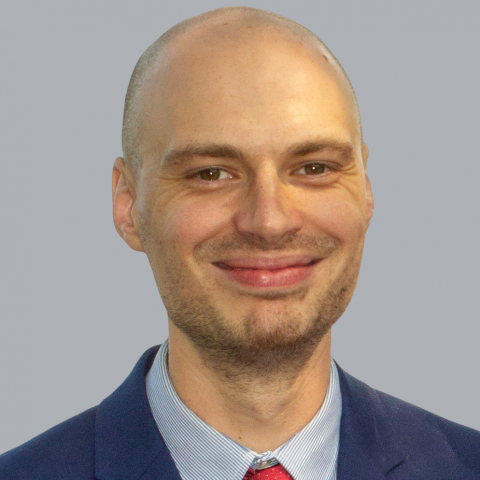There are an estimated 31,000 individuals with amyotrophic lateral sclerosis (ALS), a disease causing nerve cells to die. An unfortunate side effect is paralysis in the body, ranging from the inability to move limbs to not speaking. However, Tyler Singer-Clark, a Northern California Chapter Scholar at UC Davis, works to give ALS patients their voice back.
At the UC Davis lab, where Singer-Clark is a PhD student, they focus on neural prosthetic devices for speech. Right now, they’re actively working with a clinical trial participant who has ALS and cannot communicate clearly. One of Singer-Clark’s two principal investigators for the lab is a neurosurgeon who placed sixty-four electrodes into the patient’s speech-motor cortex in the brain.
The electrodes record the neural activity in the participant’s brain when he tries to speak. While his speech may not be intelligible, many of his neurons provide a clearer signal. “The neurons in that part of the brain that we're recording from still spike with neural activity and indicate what word he's trying to say,” Singer-Clark says, “and we can try and figure out what words he's trying to say, using computers and decoding algorithms.”
His field is called brain-computer interfaces (BCI) because the computer reads signals, such as neuron activity, from the brain and then translates them into actions. However, his work, specifically with their ALS clinical trial participant, makes this invention a neuroprosthetic device as it will hopefully become a medical device to help someone with missing speech.
Singer-Clark explains that there are about forty phonemes, a distinct unit of sound, in the English language. To decode what their participant is trying to say, they have him say various words that include those forty sounds to create his own mapping from brain activity to sounds. When those sounds are combined, they can produce 125,000 different words. Singer-Clark shares, “When he wants to say anything new, we can look at which neurons are firing, map the mouth movements, and reconstruct the words in real-time to show them on the screen.”
May is ALS Awareness Month, and Singer-Clark knows the damage ALS can inflict. “ALS is completely devastating and impacts every aspect of someone’s life,” he shares somberly. This disease is what motivates him to do this groundbreaking work. “Our work could have a life-changing technology, and it works; it just needs to get to people.”
After graduating in a few years with his Biomedical Engineering PhD, Singer-Clark hopes to join the industry to help create the hardware and software for this device to reach a larger audience. He cites Paradromics and NeuraLink as examples of a companies already working on similar devices. He’s hoping to leave his impact on the world with his work and create something meaningful.
Singer-Clark is grateful to be an ARCS Scholar Award recipient because he’s using his funds this upcoming summer to attend a Computational Neuroscience course. “This is a major gap in my current training, and doing this course will completely boost my research by being able to take these computational neuroscience methods and apply them to my research,” he shares excitedly.

